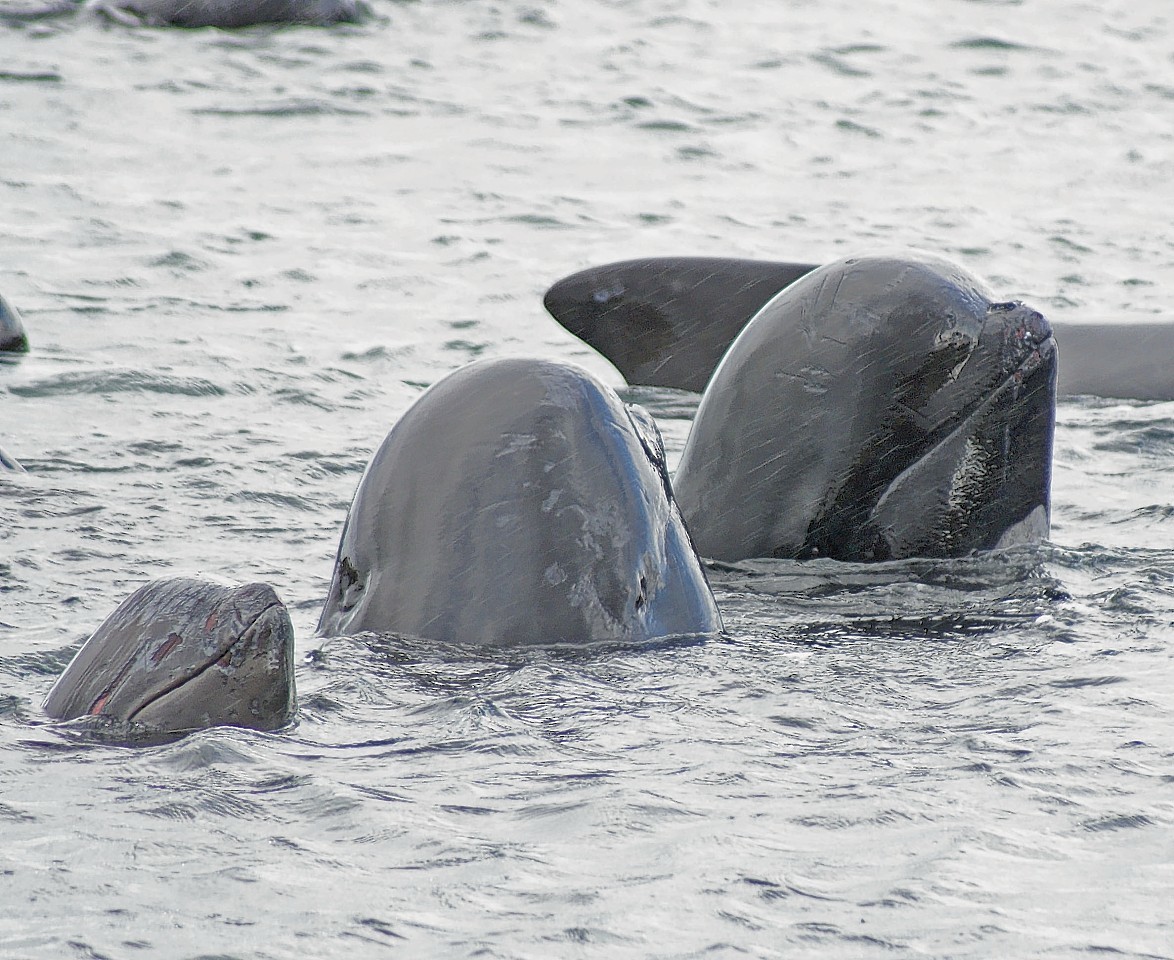Noise from underwater bombs caused 19 pilot whales to beach and die on the north coast of Scotland four years ago, it has emerged.
The SNP has now called on the Ministry of Defence (MoD) to give assurance that no more bombs will be exploded in Scottish waters following a report on the July 2011 incident.
The Department for Environment Food and Rural Affairs (Defra) found that the explosions could have damaged the hearing and navigational abilities of the whales, causing them to beach at Durness and die.
SNP MSP for Caithness, Sutherland and Ross, Rob Gibson has written to Defence Secretary Michael Fallon demanding assurances this will not happen again.
Mr Gibson said: “This report confirms what we already suspected but the Ministry of Defence tried to cover up – the detonating of bombs led to the whales being deafened, forced off course and dying on the beach at Kyle of Durness.
“The fact that it took four years for this report to be published and for the UK government to accept that they are to blame is ridiculous.
“The efforts of the local people in the Kyle of Durness to save the beached whales were incredible – but sadly the animals could not be saved and many died.”
On July 22 2011, 70 long-finned pilot whales swam into the Kyle of Durness, a shallow tidal inlet east of Cape Wrath, Europe’s largest live bombing range. Despite attempts to herd them back out to sea, 39 were left stranded by the tide.
Experts and local people managed to refloat 20, but 19 died. It was one of the largest mass strandings in recent years, and it prompted a government-funded investigation by 12 scientists from laboratories across the UK.
Their report reveals that three 1,000lb bombs were detonated in the sea nearby by the Royal Navy’s Northern Diving Group in the 24 hours before the whales were stranded. A fourth 250lb bomb was exploded after stranding began.
The report states: “The magnitude, frequency and proximity of the multiple detonations in the day prior to the stranding, and the single high-order detonation shortly after the beginning of the mass stranding, were plausible sources of significant disturbance to any neighbouring marine mammals.”
The three initial explosions could have had a “significant detrimental effect on the hearing and therefore navigational competence of any cetaceans in proximity,” it adds. The fourth bomb “might have served to drive the animals further inland”.
